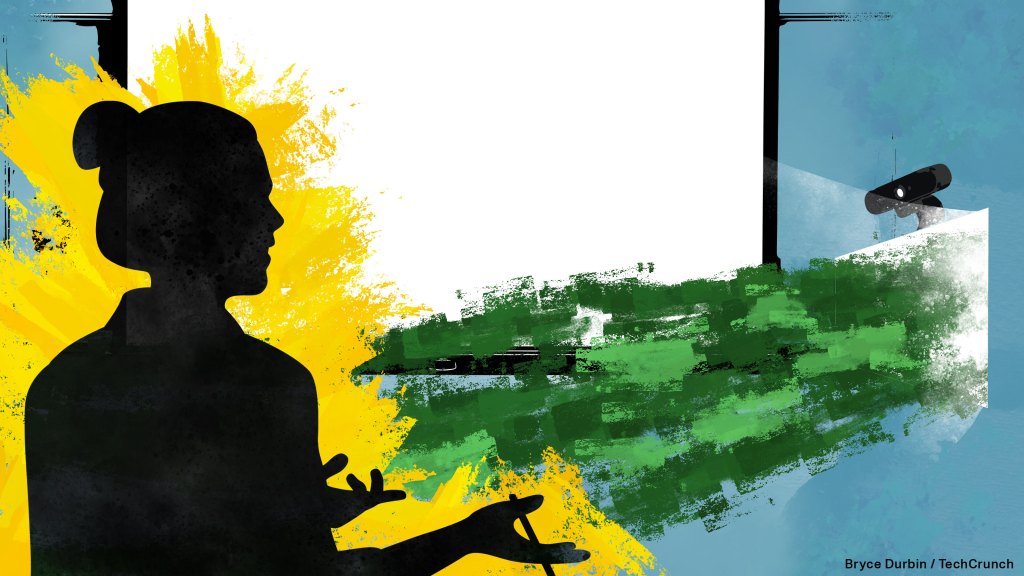Revitalized by the pandemic, entrepreneurs are on the hunt to refresh some of education’s most traditional tenets, from flashcards to tutors to after-school programs. And those aren’t just bets: They’re unicorn-valued businesses looking to capitalize on consumers’ newfound digital adoption.
The edtech sector’s boom is rivaled by that of the creator economy, which promises to help creators monetize and democratize their passions, all while maintaining their identity. The creator economy has grown over the past year due to an increased appetite for digital content from at-home eyeballs and a wave of new creators eager to meet demand.
Edtech and the creator economy certainly differ in the problems they try to solve: Finding a VR solution to make online STEM classes more realistic is a different nut to crack than streamlining all of a creator’s different monetization strategies into one platform. Still, the two sectors have found common ground in the past year — as encapsulated by the rise of cohort-based class platforms.
At large, cohort-based platforms help experts launch classes for their communities, no previous teaching experience required. Students move through the class together — ergo “cohort” — with the expert on-demand as a sounding board. It’s a bet on education, but it also allows an individual to showcase their passion by pushing all their chips to the center of the table rather than working for an institution. While the idea of experts teaching a group of people isn’t exactly new, it’s being refreshed by a wave of new startups.
It’s not a simple overlap, entrepreneurs and investors say. Some fear that turning creators into educators could bring in a rush of unqualified teachers with no understanding of true pedagogy, while others think that the true democratization of education requires a disruption of who is traditionally given the right to educate.
Anyone’s a teacher!
Massive open online courses (MOOCs) and traditional institutions are built around the belief that students want to learn from accredited teachers, while many cohort-based platforms are forming around a more controversial, yet compelling, ethos: Anyone can be a teacher. The idea of empowering people to monetize their talents is a page directly out of the creator economy rulebook.
In other words, instead of convincing a college professor to teach in their spare time, what if you convinced the star product manager at a tech startup to launch a class sharing their tips and trade secrets? It’s not a theory; it’s a venture-backed business. Mighty Networks raised a $50 million Series B to help its creators launch classes. Last month, Nas Academy raised $11 million to help creators launch their own MasterClass-type series. Then there’s Maven, an early-stage edtech company that raised millions before it even had a name — and led the charge on popularizing cohort-based classes as a branding move to begin with.
These companies sit at the intersection of edtech — and its evolving views on how education should look — and the creator economy, with its empowering premise of “individuals as a business.”
Mark Tan has taken part in a dozen fellowships and received years of coaching through his years in tech. For Tan, who moved from the Philippines to the United States, the allure of virtual classes has always been the network of students also participating in the program. That virtual networking led him to stints at Amazon and Twitch, and, most recently, he spent the last three years working as a director of product at Wyze.
The realization that “you don’t need to be an expert teacher, just an expert” is what eventually gave Tan the confidence to launch a course of his own on Maven. It will begin in a few weeks and is about community-driven product development.
“I’ve been in fellowships with people who are really well known, and sometimes it’s hard to connect with them because they’ve been in my shoes five or 10 years ago,” he said. “I think there’s an overreliance on the expert being the teacher.

“Over time, what I realized is that there’s way more stuff to learn from other people, so I spent more time connecting to [my peers] rather than spending time listening to the lecture.”
His four-week class was originally priced at $799 but now costs $599 and requires a commitment of five to 10 hours per week. Programming will range from live weekly workshops and open Q&As to guest speakers and peer-to-peer networking.
In many ways, Tan is the quintessential example that cohort-based platform founders look for when trying to bring creators onto their service. He has experience at big, well-known companies, has spent years experiencing the product he is now selling and has a passion for education after seeing the benefit of peer-to-peer learning firsthand.
“The best teachers are the ones who haven’t been teachers before,” said Ana Fabrega, who spent years as a primary school teacher before joining Synthesis, an online enrichment school inspired by Elon Musk’s Ad Astra model. “I think that the instinct of a teacher is to jump in and try to control, over-engineer and plan everything so kids don’t struggle … but I think the approach that works the best is [by doing] the opposite.”
Synthesis focuses more on creating good facilitators that can sense engagement and create intimacy with students than educators who focus on a specific curriculum to hit certain metrics, Fabrega explained.
“We really want to make sure that the kids are the ones in charge and doing all the heavy lifting, not the teachers,” she said.
Tan and Fabrega underscore the common idea that sometimes the best innovation comes from outsiders, especially in a sector as emotional and culturally intertwined as education. But as the opportunity to teach becomes more accessible due to an influx of creators turned “educators,” some are skeptical that learning outcomes will suffer.
How do you vet for passion?
There’s always been a tension in edtech between fast-moving technology and actual pedagogy, a term that describes the method and practice of teaching. Even Duolingo, which had a multibillion-dollar IPO, struggles with learning outcomes around true fluency, but it’s still considered one of the most successful consumer edtech startups of all time.
Some critics believe that cohort-based course (CBC) platforms might be too flexible in who they allow to teach.
“Knowing how to start a company does not mean, by any stretch of the imagination, [that] you know how to teach people how to start a company,” Tade Oyerinde, Campuswire founder and CEO, said. “It’s a very different skill set and there are people who’ve spent their whole careers just studying pedagogy, developing knowledge around how people learn and [understanding] how the good teachers teach.”
Oyerinde recently pivoted his company to focus more on live, cohort-based classes through a tuition-revenue share model. Taking a page from the original wave of online learning solutions, such as Coursera or Udemy, Campuswire classes are all taught by professors. The choice to work with more traditionally certified teachers has its own challenges with scale and competition, but Oyerinde said that it shows the startup’s promise to learners: that they will have access to “actual knowledge.”
Meanwhile, he views some startups in this category as offering access to a “pseudo-celebrity or domain expert.”
“I think … some people might be thinking that they’re going to get access to, like, ‘the secret keys to’ success as a social media influencer,” he said. “They’ll often be wildly disappointed, because some of these classes don’t actually offer much beyond what you can, if you’re diligent, get through podcasts and YouTube.”
Oyerinde’s caution doesn’t mean he hasn’t engaged with the creator economy. Last year, Campuswire announced that Precursor’s Charles Hudson would be teaching a class on angel investing for $2,500 per seat. But — and Oyerinde said this is critical — the Campuswire class isn’t Hudson’s first foray into teaching. The managing director has lectured on entrepreneurship and diversity for almost two years at the Stanford University Graduate School of Business.
“If the future is ‘everybody is a teacher,’ then there probably needs to be a company that’s training all of these creator teachers, influencing our faculty how to actually teach in a way that is systematic, and that is disciplined, and that is inclusive,” Oyerinde said.
“If Twitter celebrities were genuinely passionate about teaching, they would have already been teaching, just like Charles is already teaching,” Oyerinde said.
Ish Baid, the founder of live class platform Virtually, worries that cohort-based class platforms “are turning into a vehicle for influencers to get liquidity from their following.”
“Anyone with a large enough following can put together a CBC, charge $1,000, and not provide much value,” Baid told TechCrunch. “The people who are building great CBCs are the ones who see themselves as educators first, creators second. CBCs [aren’t] just another stream of revenue for them. It’s the stream of revenue.”
Virtually is trying to avoid the pitfalls of other platforms trying to convert creators into educators by plucking teachers with existing CBCs and offering a suite of no-code, automated tools.
Baid’s perspective illustrates a key tension in the world of CBCs: the difference between people who can teach and the people who probably shouldn’t. This is what the creator economy often tends to get wrong: It assumes that creators are a monolithic entity that craves to do — and monetize — everything, from paywalled podcasts to rolling funds to running a class to teaching others how to be just like them. The reality is that creating content for a CBC could take between 50 to 70 hours alone, and that doesn’t even include the actual instruction time and feedback loops.
One human doesn’t scale well among all those different products, and CBCs could become yet another bullet point for creators rather than a dedicated project.

QA, Q&A
Creator-focused edtech startups need to list more and more teachers on the platform over time while (ideally) scaling the quality of the content taught at the same clip. The successful platforms in the CBC world will master the delicate art of both.
Jomayra Herrera, partner at Reach Capital, believes in the concept of CBCs at a philosophical level.
“I love the idea of democratizing access to the expertise and knowledge that people have all across the globe,” she said. “Then the question becomes, how do you actually do it, and I really don’t believe that people that are experts and are really smart entrepreneurs are always the best educators.”
She urges entrepreneurs, even if they believe in the power of the class over the teacher, to not lose pedagagoy as a priority.
“Now is the time where consumer behavior has shifted, but the tools and pedagogy have not accelerated in the same way,” she said. “We have to rethink that in order to make the experience as close to in-person as possible.”
For Mercedes Bent, partner at Lightspeed Ventures, the potential of cohort-based classes isn’t “really a market-size question, it’s a format preference.” By definition, she argues, 100% of people who went to K-12 school, college or any work program have taken a cohort-based program. For the startups working on post-secondary, learning and development courses, Bent thinks the biggest limiter is the start date.
“On any given day you want to start learning, the chances are 1/365 that a course is starting that day and you can enroll,” she said. “Question is what [percent] of those people who had high intent to enroll would rather wait for a date [versus] substitute an asynchronous course. I believe the potential is that a large [percentage views an asynchronous course as a] supplement, not a substitute.”
If Bent’s argument plays out and CBC platforms are limited to providing supplementary education, they may not need to prove outcomes the same way a for-credit online university may, but they will need to find different ways to vet for quality.
Maven, for example, holds a cohort-based class for anyone interested in teaching their own and covers the basics on how to build, launch and market a course. Co-founder Wes Kao, who leads the class, helps creators understand course-market fit, the different ways to make students engage, which frameworks work best in a digital classroom and why it’s important to have a point of view as an instructor.
It is currently a requirement for creators to take Kao’s course on how to create a cohort-based course, but that may not always be the case. The company wants to balance rules and standards with a spirit of experimentation.
“I’ll tell you all these rules, but feel free to break them,” Kao said. “We don’t want to tell creators that you have to do a course this way, you have to phrase it like this, you have to cater to this kind of student.”
Maven has committed to removing courses that are fraudulent or incite violence, but Kao said that it is a slippery slope every platform has to think about.
“I don’t know if Maven will necessarily police low-quality courses,” she said. “If a course is low-quality, it has negative word of mouth, bad reviews — people won’t sign up, and [those creators] won’t get away with it.”
Similar to Maven, Mighty Networks, a creator economy platform that offers cohort-based classes as one of its products, relies on its community to moderate out bad teachers with their dollars (or lack thereof). CEO and co-founder Gina Bianchini teaches an optional community design master class, which gets into the meat of how to build a course.
Jane Stecyk, Mighty Networks’ SVP of marketing, said that the course includes best practices for prospective students, but also for the creators who are looking to make a course their business. It is not required before individuals launch a course on Mighty Networks.
Mighty Networks currently boasts over 5,000 courses, with more than 400 new courses added to the platform every month. The offering has attracted 11,000 total customers, she said.
The company believes that in order for creators to be teachers, they don’t need to be experts — they just need to be able to form a tightly integrated community around a topic.
“You’re not the expert; you’re just a half step ahead [and] you are leading people through this journey, but the community is where they’re going to find value and inspiration and accountability,” Stecyk said. “So it’s less about, ‘Hey, you need to be an expert and have your curriculum planned out for 10 weeks [with] hours and hours of professionally produced video — it’s really about who can you bring together that can learn from each other.” It’s why Mighty Networks has put resources toward building an internal chat service for cohorts to message with each other instead of forcing participants to converse on another platform, like Slack or Discord.

Depends on the pedestal
Edtech’s creator economy moment is ultimately somewhat ironic. Cohort-based courses empower individual creators to share knowledge, but the cohorts are essential in leading the majority of the learning benefits.
Student-directed learning is still a nascent idea considering how traditional education works. The teacher has always been a central communicator to instruction. Removing that power, and replacing it with a student, may confirm skeptics’ worries about unqualified teachers — but it comes with its own set of challenges and pressures: Will students pay to offer value to each other? (Probably).
While the subsector may stumble a bit, Maven’s origin story may be enough of a signal that it’s nearing its stride. The startup is co-founded by Gagan Biyani, who is also the co-founder of Udemy, an old-school edtech company that was defined by the rise of massive open online courses taught by seasoned teachers for the individual learner. He’s now building a startup alongside Kao that wholeheartedly disagrees with his previous business — a bet on the power of collective learning, and an attempt to actually disrupt how we think about teachers.
Udemy and altMBA co-founders return to edtech with a new, stealthy business
Biyani said inspiration for Maven struck seven years after leaving Udemy, when he was taking an online course on how to write a book.
“I was responsible for doing a very personal thing. I was talking to an audience that I’d never met before, and I was bawling my eyes out — literally on Zoom,” he said. “I was way too cool to be on Zoom in 2016 pouring my heart out over this platform — and that is probably the moment where I realized, OK, there’s something here.”































Comment